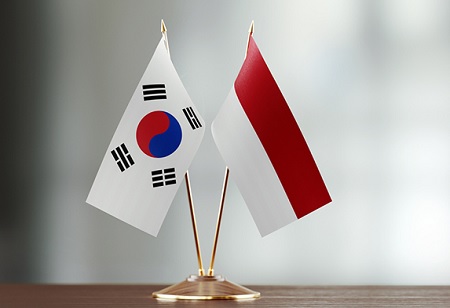
Indonesia and South Korea Partner for Digital Innovation

 The importance of collaboration and partnership among nations in addressing digital technology cannot be overstated. These alliances allow companies to merge their strengths and knowledge, leading to the development of innovative products and services that surpass what individual companies could achieve. By pooling resources and sharing expertise, nations can capitalize on diverse perspectives, resulting in significant achievements in the dynamic digital arena.
The importance of collaboration and partnership among nations in addressing digital technology cannot be overstated. These alliances allow companies to merge their strengths and knowledge, leading to the development of innovative products and services that surpass what individual companies could achieve. By pooling resources and sharing expertise, nations can capitalize on diverse perspectives, resulting in significant achievements in the dynamic digital arena.
Indonesia and South Korea are set to enhance their collaboration in digital technology, representing a notable achievement in their enduring partnership. Leading this effort is Indonesia's National Research and Innovation Agency (BRIN), which has actively engaged with institutions like the Regional Cooperative Agreement Regional Office (RCARO), Korea Atomic Energy Research Institute (KAERI), and Korea Institute of Radiological and Medical Sciences (KIRAMS).
Edy Giri Rachman Putra, BRIN's Deputy for Science and Technology Human Resources, emphasized the importance of this collaboration in advancing accelerator technology development. "Indonesia and South Korea have a rich collaborative history in the development of accelerator technology. This partnership serves as a cornerstone for both parties to enhance their capabilities and establish more effective programmes and strategies", explained Edy.
The meeting between the two countries also focused on enhancing human resource capacity in mastering nuclear technology. BRIN has initiated a research visit programme that sends students and researchers to South Korea to participate directly in accelerator and other nuclear-related research with specific topics. Indonesia views South Korea as an ideal mentor for digital technology in Southeast Asia, given its extensive experience and expertise in the field. Its indigenous APR1400 reactor design has obtained certification in the US and Europe, affirming its safety and technological excellence.
South Korea's cutting-edge nuclear energy research encompasses technologies such as high-temperature gas-cooled reactors (HTGRs) aimed at providing low-carbon heat solutions, particularly beneficial for industries like steelmaking in their efforts to reduce carbon emissions. Additionally, South Korea is investigating small modular reactors (SMRs) designed to adapt output levels to align with fluctuations in renewable energy production, thus complementing the nation's expanding use of renewable energy sources. Advanced reactor designs, some incorporating integrated energy storage systems, provide flexible baseload capabilities to balance renewable energy sources effectively without generating emissions.
Su JUNG, the representative from South Korea, confirmed the continued international partnership between South Korea and Indonesia, specifically in the advancement of cyclotron technology and the enhancement of human resource capabilities. This cooperative effort has brought reciprocal advantages to both nations and has the potential for further expansion to encompass the integration of cyclotron technology within Indonesia.
Muhammad Rifai, the leader of BRIN's Research Centre for Accelerator Technology (PRTA), underscored the advancements made in BRIN's accelerator research program, with a specific focus on neutron source exploration, radioisotope manufacturing, sterilization techniques, and practical research applications. Rifai emphasized the creation of a collaborative research platform dedicated to overseeing the application of accelerator technology, particularly within the health and industrial domains.
Looking ahead, Indonesia and South Korea's digital technology collaboration is expected to deepen, focusing on developing innovative solutions for sustainable energy and industry. This partnership will likely lead to the continued exchange of expertise and resources, fostering mutual growth and development in digital technology. As both countries strive to achieve their respective decarbonization goals, this collaboration will play a crucial role in advancing clean energy solutions and mitigating the impacts of climate change.

